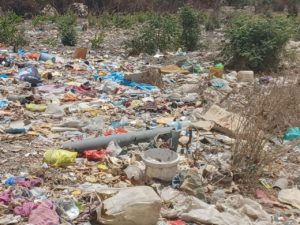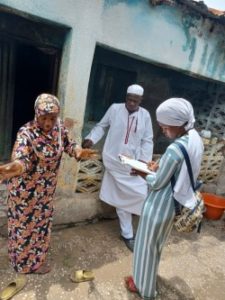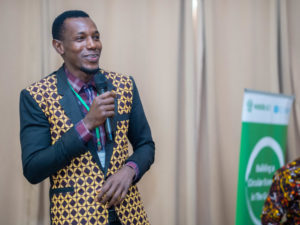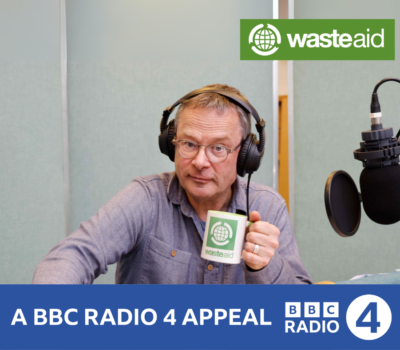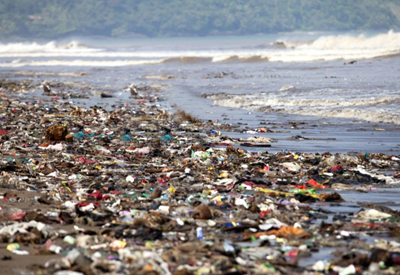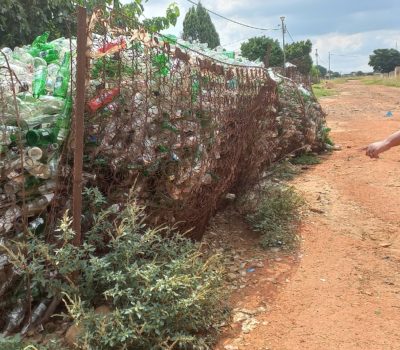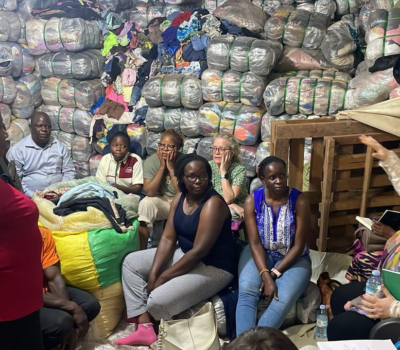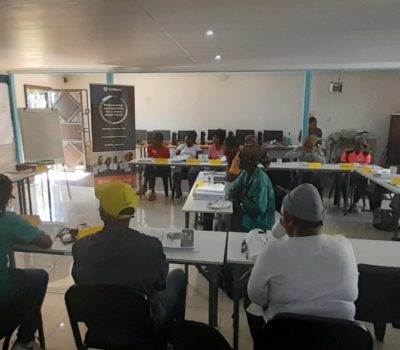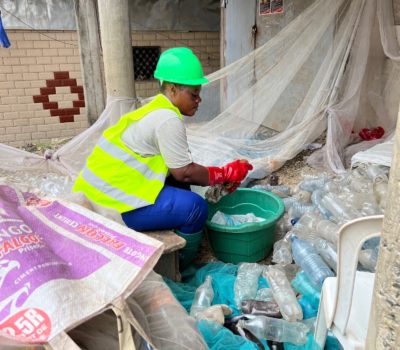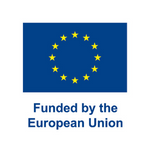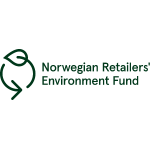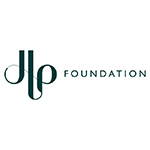Empowering Communities To Find Long-Term Solutions To The Waste Crisis
News
Author: Alison
Published: 15 September 2023
Taking a smart approach to Africa’s waste management is fast gaining momentum in The Gambia, as well as other parts of the continent. One charity working hard to deliver long-term solutions to the growing waste and plastic crisis is UK-based WasteAid.
The organisation, which supports some of the most vulnerable communities around the globe, has been active in The Gambia since 2015 and has seen interest in its initiatives skyrocket in recent years. The charity is founded on a ‘think global, act local’ philosophy that focuses on bringing people together from all walks of life – from waste collectors to government officials, business owners to academics, to tackle waste pollution at a community level.
The country is one of the few African countries committed to meeting the Paris Agreement to keep global warming below 1.5C. Alongside reducing climate emissions, the Ministry of Environment is focused on protecting the country’s natural resources and building resilience to climate shocks such as drought and floods.
One of WasteAid’s most recent projects in The Gambia is a new plastic recycling scheme that aims to empower young and vulnerable people in three Gambian communities. Funded by the Norwegian Retailers’ Environment Fund (NREF), WasteAid has partnered with local recycling company, Plastics Recycling Gambia to work with local waste collectors to find ways to improve how plastic waste is collected, sorted and recycled.
Giving communities the skills, infrastructure and support to make an impact.
As part of the project, 40 waste collectors will receive training on collection and recycling techniques. They will also undertake a life skills training programme developed by WasteAid on basic accounting, business skills and other critical skills. In addition, the Plastic Recycling Gambia centre will receive business training support to help them expand its services to more regions and upgrade its equipment. It’s hoped the expansion of the centre will create 30 new jobs.
Improving the collection of plastic waste will not only significantly reduce the amount of plastic that is either dumped or burned but will also help build sustainable income streams for waste collectors, assisting the development of a vibrant circular economy in The Gambia.
Ceris Turner-Bailes Chief Executive of WasteAid said: “No child should have to play next to piles of burning rubbish yet across some of the most vulnerable communities in the world this is a tragic reality. In countries where there is no official waste management infrastructure, communities are forced to burn or dump the majority of their waste and rely on individual waste collectors to clean up the rest.
“By bringing waste collectors together with mentors, government officials, and businesses we are able to break the stigma that they face and empower them to become wastepreneurs in their own right. Building an effective circular economy that can deliver a lasting improvement both to the environment and the health and wellbeing of people living in affected communities.
“That’s why projects such as the NREF-backed initiative in The Gambia are so critical. It’s thanks to the support of organisations such as NREF and other corporate backers that we are able to make such a transformational impact in the communities where we are active.”
A survey by WasteAid of the communities participating in the plastic recycling initiative showed that with a bit of education and support, people are willing to take responsibility for their waste management which is important for the sustainability of these types of projects. initiatives
The survey found that 92% of people asked in the communities where the initiative is active said that dumped waste and littering was a problem in their area, while 53% of respondents said they burned their waste, 30% said they dumped it. Just 22% said they took their waste to a bin, official dumps or landfill sites. Yet, everyone said they would use bins if they were made available.
Supporting the wastepreneurs who can make it happen.
Plastics Recycling Gambia was launched by 26-year-old Gambian entrepreneur, Alieu Sowe. He was forced to close the business because of Covid but another WasteAid programme called the Waste to Use Challenge, sponsored by the Chartered Institution of Wastes Management, provided him with the investment, mentoring, and skills he needed to kick-start his enterprise and get it back up and running.
His facility is the only organised collection service of high-density plastic in The Gambia. Once collected, the company then cleans and chips plastics so they can be processed by larger companies, including GamPlast, which is currently importing recycled plastics from outside the region, as it is unable to source the HD locally without improvements in the collection system.
Plastics Recycling Gambia currently collects 15 tonnes of hard plastic a month from 21 collection points across the region, providing income for up to 21 waste collectors who collect and bag up the plastics. The company then gather the plastics to wash, sort, chop and chip them. They are then sold to companies including GamPlast who then pelletise them to make consumables including water pipes, basins, and buckets locally.
WasteAid’s initiative aims to increase the volume of plastic recycled at the plant to 50 tonnes each month. It will also create job opportunities for people wanting to enter the waste sector as well as educating the wider community on the potential value of materials they currently consider to be waste. The charity is drawing on its wide network to open up end markets for the collected and recycled waste – helping to increase the economic outlook across the region.
Mr Sowe added: “I’m very grateful to WasteAid and NREF for their support which will be transformational for our business and will have a big impact on removing more plastic from our environment. We are hoping that by reaching our target of recycling 50 tonnes of plastic every month we will be able to reinvest the small profit to ensure the organic growth of the company, which will include expanding to other regions.”
WasteAid works with communities and policymakers in low and middle-income countries to implement circular solutions focused on waste management and recycling. This latest project will run for the next two years. As Norway’s largest private environmental fund, NREF supports national and international projects to reduce plastic pollution, increase plastic recycling and reduce the consumption of plastic bags.
Cecilie Lind, CEO of the Norwegian Retailers’ Environment Fund said: “Our vision is to ensure plastics circularity and a pollution-free environment, and WasteAid’s latest project in The Gambia is a perfect fit for funding as it plays a significant role in the implementation of circular waste and recycling initiatives. We will follow the project’s journey as it works to help prevent climate emissions, build climate resilience, and create much-needed sustainable livelihood opportunities.”
A Gambian businessman with a green vision
Another Gambian wastepreneur to benefit from WasteAid’s support is Sulayman Darboe who is also 26 years old. As the first in his family to go to university, the pressure was on to take a well-paid office job, but Sulayman set his sights on loftier ambitions. Having grown up witnessing the health impacts of burning wood for fuel he decided to find an alternative.
Today, having received mentoring and financial support from WasteAid, he runs a green business, providing a sustainable, healthier alternative to burning wood by turning coconut husks and peanut shells, which would usually be shipped to other countries as waste, into briquettes that can be burned for cooking.
“People often ask me why, with my degree, I don’t go work in a bank. They say, ‘Why are you struggling and taking a difficult path?’ but you have to make an impact even just a small one and that’s what I’m trying to do,” said Sulyaman.
“We cannot do it alone. We live in a community that really needs help. We cannot do it without support. I was just a university student coming up with an idea. To make an impact we need partners and investment so we can help our women and children,” he added.
Supporting communities around the globe
Now in its ninth year, WasteAid has grown from strength to strength and has more than quadrupled in size since 2020. Waste management helps address some of the world’s most pressing issues and is critical to achieving sustainable development; the organisation has most recently implemented programmes in Cameroon, Egypt, India, South Africa, The Gambia, and Vietnam.
From training women in waste processing activities and running an international conference on Waste Management for Community Resilience to delivering an EU-funded project in partnership with a key municipality, to divert food waste from disposal and train women farmers to make compost and sustainable cooking fuel or helping to develop circular economies, WasteAid’s positive impact is clear.
*Article first published in MRW magazine

